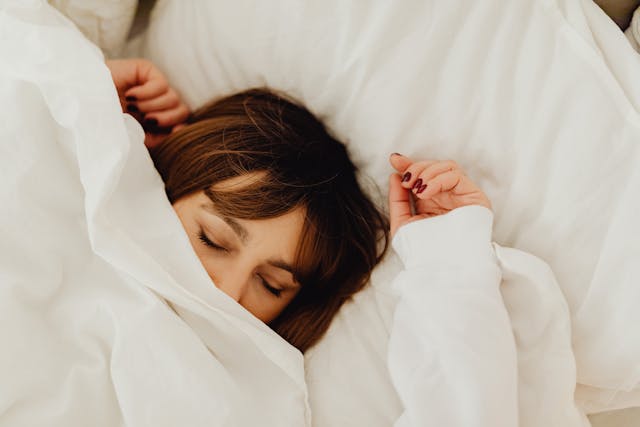Breathing through your mouth can disrupt healthy sleep. Considering the importance of quality rest to overall health, many health enthusiasts jumped on board when mouth patches became popular. Restricting upper and lower lip movement while sleeping encourages the body to breathe through the nose—a miracle solution for mouth-breathers who rarely feel rejuvenated despite sleeping like a log . Is taping your mouth really therapeutic?
Scientifically Proven Benefits of Oral Taping
Health enthusiasts who embrace this trend claim that it can counteract the negative effects of mouth breathing. Some say it can reduce dry mouth, gum disease, bad breath and tooth decay. Others believe it can reduce sleep-disordered breathing, ADHD symptoms, cognitive decline and slow growth in children.
The problem is that these benefits are anecdotal. Researchers have not confirmed its authenticity. There may be some truth behind these claims, otherwise they wouldn’t be as durable. Still, they remain unproven until the scientific community finds solid evidence.
However, some studies of people with sleep apnea have found that sealing the lips with porous tape can successfully do one thing – help sleepers snore less, thereby minimizing fatigue.
Reduce snoring
A 2022 study found that mouth-breathing patients with mild obstructive sleep apnea (OSA) who used 3M tape to shut their mouths before bed improved their median apnea/hypopnea and snoring index by 47%.
Moments of 10 seconds or more of slow, restricted and shallow breathing and no breathing at all that patients experienced were reduced by nearly half. These findings convinced the Taiwanese researchers behind the study to consider oral taping as a viable alternative treatment for OSA patients before taking continuous positive airway pressure therapy or undergoing surgery.
Reduce fatigue
When you have OSA and breathe through your mouth while dozing, you may stop breathing five or more times per hour during sleep due to blockage in your airways. These pauses deprive your body of oxygen and cause carbon dioxide to build up. Your brain will detect this and remind you to breathe. You wake up enough to take a few breaths, but not enough to recall anything. Going through this cycle multiple times each night can leave you feeling exhausted in the morning.
Use tape strategically over your mouth to remind you to breathe in through your nose and prevent breathing interruptions. This can increase your chances of getting a restful night’s sleep despite having OSA and bad habits, such as excessive use of electronics or eating a large meal before bed.
Key considerations before taping your mouth
Although some researchers recommend oral taping to treat obstructive sleep apnea, health care professionals advise against considering it as a treatment for your sleep disorder for three reasons.
it fails to solve the underlying problem
Using oral tape only addresses one of the symptoms of sleep problems, not the root cause. It has no effect on the airway obstruction that causes OSA. The culprit may be a scalloped tongue, inflamed tonsils, age, or gender, as sleep apnea tends to affect adults over 65 and men.
Additionally, when you have a stuffy nose, your body may prompt you to breathe through your mouth. Sealing your mouth instead of relieving nasal congestion can cause breathing problems and interfere with sleep.
It may cause more problems than it solves
There are many disadvantages to using tape to cover your mouth to get quality sleep. Adhesives can irritate your lips and surrounding area. About 2%-3% of people may develop allergic contact dermatitis from this irritant.
Additionally, removing the tape can be painful, especially if you have facial hair. Ironically, the discomfort caused by a mouth patch can disrupt your sleep and defeat its purpose.
Oral breathing difficulty while sleeping may cause anxiety, make you feel restless at night and exacerbate sleep problems. Some people don’t like to hide their mouths before falling asleep. This discomfort makes sense because you might vomit or choke.
Incorrectly taping your mouth can be hazardous to your health. There are no official guidelines for doing this, and clinicians generally don’t practice it. Most health care professionals may refuse to give you advice on what to do.
The drawbacks of this health trend outweigh its science-backed benefits, so think twice before doing so.
it has better options
There are healthier and safer ways to reduce snoring and fatigue. Sleeping on your side, lying on a bed optimized for spinal alignment and pressure point reduction, and wearing a noseband are more promising solutions.
Mouth patches are a Band-Aid solution
The medical community may one day embrace this health trend if enough researchers validate its claims. But don’t hold your breath. Most healthcare professionals believe this is at best an inadequate solution to sleep problems and at worst a dangerous practice.

